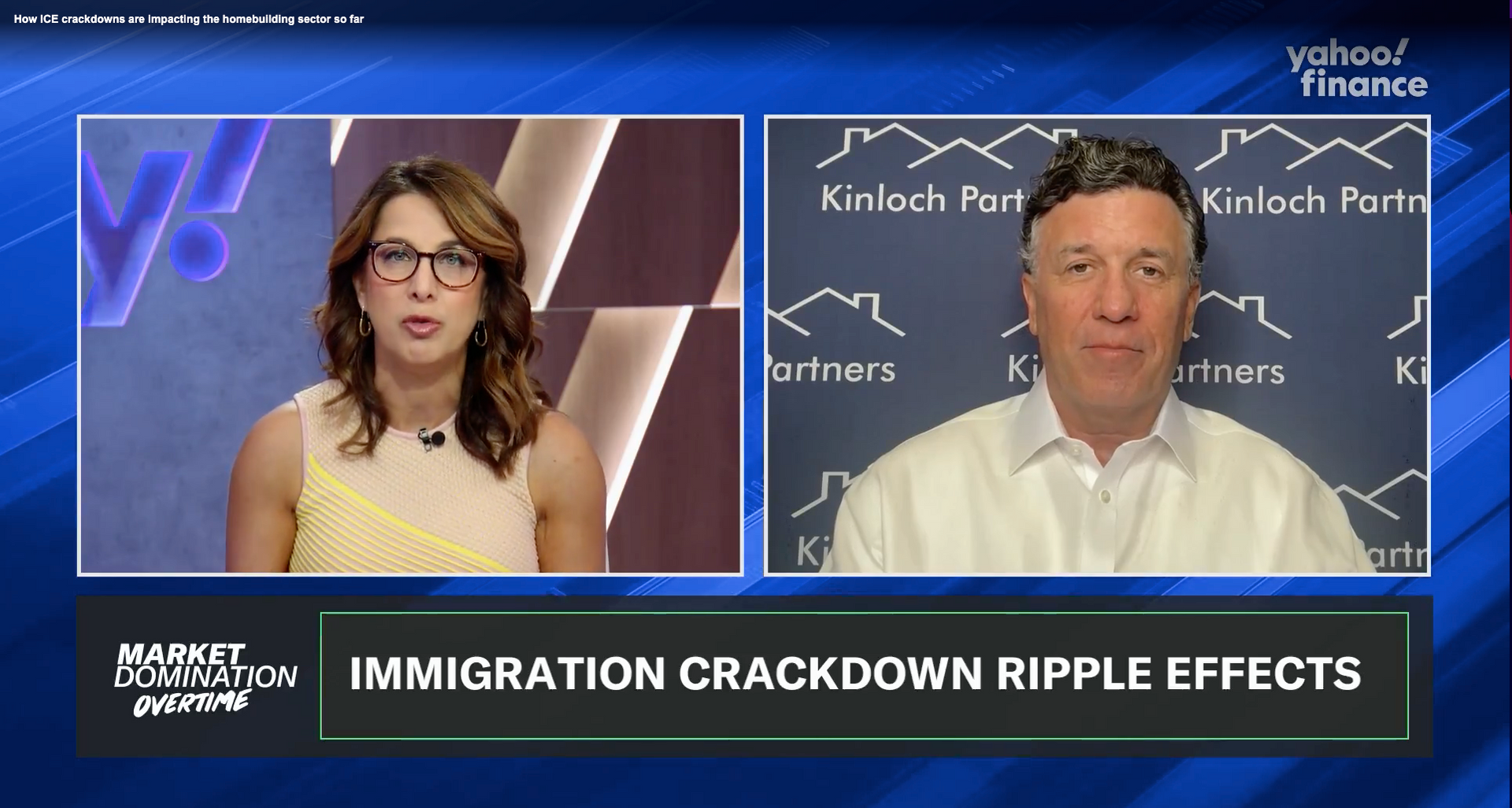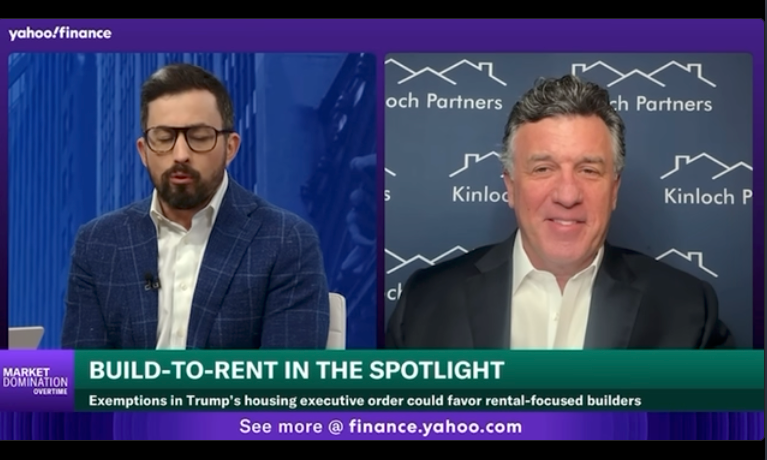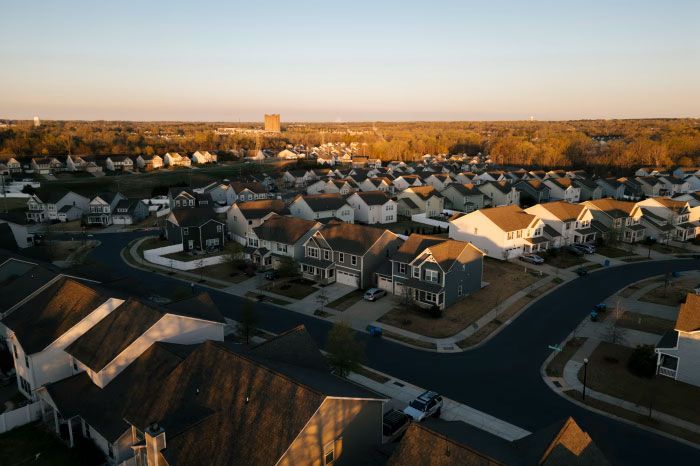How ICE crackdowns are impacting the homebuilding sector so far
Watch the full video here: https://finance.yahoo.com/video/ice-crackdowns-impacting-homebuilding-sector-213000989.html?contentType=VIDEO

Kinloch Partners CEO and co-founder Bruce McNeilage joins Market Domination Overtime to discuss the impact of US Immigration and Customs Enforcement (ICE) crackdowns on undocumented immigrants, noting that, so far, there have been limited interruptions to job sites in the southeast region of the US.
To watch more expert insights and analysis on the latest market action, check out more Market Domination Overtime here.
Video Transcript:
Well, those protests against immigration raids have been spreading in the US. And as we just heard, they're expected to further galvanize more protests this weekend. Several industries are also facing the weight of President Trump's immigration crackdown. Undocumented immigrants make up an estimated 15 to 20% or more of the US workforce in industries like crop production, food processing, and construction, according to Goldman Sachs. To discuss specifically the impact on housing construction, we're joined by Kinloch Partners co-founder and CEO, Bruce McNeilage. Bruce, it's good to see you back on the show, um, and this is an issue that we've spoken a little bit about before. I'm curious, first of all, as we see sort of an expansion of this crackdown, what you're seeing in your business, what you're hearing about from your colleagues.
01:14 Bruce McNeilage
Sure. So at first, in the first few weeks, we did see a little lull in construction. We haven't seen anything major lately, and I think it was just a little lull. I don't see any major problems on construction sites, building homes, and we have such a deficit of homes and so many homes that need to be built in the United States. We just don't see ice, we don't see any interruptions. And I've talked to different folks on job sites, and they said they haven't seen anyone. Uh, there haven't been any issues, and so I think that's good if you're in the home building business.
02:14 Speaker A
Now, remind us, Bruce. Kinloch Partners, you guys do build to rent, primarily, and you're mostly centered in the Southeast, is that correct? Is that, I wonder, is that, do you think that sort of the lack of disruption is regional, or do you think that the housing industry is being spared to some extent?
02:54 Bruce McNeilage
Yes, we're in Georgia, Tennessee, and South Carolina, throughout those states. And regionally, the answer to your question is yes. There is a heavier percentage of Hispanic construction workers in Texas and California than there are in the Southeast. Now, there's still over 60% of your roofers are Hispanic, over 50% of your painters are Hispanic nationally. And I've never seen a roofing contractor, quite frankly, that is not Hispanic. I've never seen a painter and a painting crew that is not Hispanic. And so it's prevalent throughout the country, but in the Southeast, we see a little bit less. Then Texas and California, it's a higher percentage.
03:56 Speaker A
And Bruce, I'm just curious here, right. If you're, you know, if you've got a roofing company, or if you've got some kind of construction company, or a contractor, I mean, even when I've been hired for various jobs, you know, I'm not giving them my birth certificate. You know, I present, you present a, a driver's license in many cases, which many immigrants can get even if they are not in this country legally. So what's, what I guess is the responsibility of the employer in terms of trying to ensure that these folks are in the country legally?
04:47 Bruce McNeilage
That's an excellent question, and all these folks that get hired to build houses are subcontractors. Uh, the companies are asked to produce licenses, workmen's compensation insurance, certificates, and things like that. But then downline, the different workers of those subcontractors are usually not checked. So it's really the responsibility of the subcontractor, the roofing or the drywall, the companies that are doing the building, to manage that, and it's not the responsibility of the home builder.











